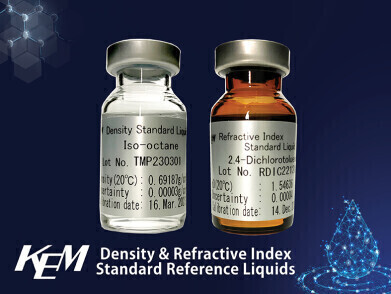Analytical Instrumentation
Tips for improving the accuracy and repeatability of petroleum product density measurements
Dec 12 2023
There are several important factors to consider when measuring petroleum products with an oscillation-type density meter. One such factor is sample viscosity. For samples exceeding 1,000mPa·s/1000cP, your meter’s viscosity compensation function should be enabled. This function is widely employed for viscous oil samples to account for the unavoidable loss of instrument oscillatory energy that they cause. Proper cleaning of your instrument's measurement cell is vital to achieve precise, consistent results. Choose the correct cell cleaning liquid/s for your sample, and subsequently perform proper cleaning and drying operations. For petroleum samples, clean after every measurement using a hydrocarbon-based solvent like toluene, then dry with acetone or ethanol. For stubborn samples, leaving the cell filled with cleanser for a set period should prove effective. Another factor is checking your instrument's measurement accuracy, ideally performed at the start of each day by measuring pure water. Periodic testing with density standards and performing calibrations with water and dry air is highly recommended. Kyoto Electronics Manufacturing provides a range of density reference standard liquids made in their ISO 17025- and ISO 17034-compliant calibration laboratory. Their quality ensures that you can check the operational health of your density meter with the utmost confidence.
Digital Edition
PIN 25.4 Aug/Sept
September 2024
Analytical Instrumentation - Novel and Rapid LSC method for the analysis of biogenic carbon in fuels Measurement and Testing - Matrix evaluation on the Xplorer-V with Vectra autosampler accordi...
View all digital editions
Events
Nov 04 2024 Abu Dhabi, UAE
Nov 04 2024 Kigali, Rwanda
Nov 05 2024 Toronto, Canada
Nov 05 2024 Paris, France
Nov 12 2024 Cologne, Germany



















